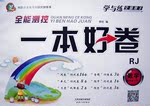题目内容
A French woman goes to London to see her son. She knows a little English, but can not speak it very well. One day she goes to a shop. She wants to buy a hen for supper. But she can not remember the English word for “hen”. Just then the shop waiter asks her, “Can I help you?” “I want the egg’s mother.” the woman answered. The shop waiter does not understand her and says, “Sorry, we have not any bigger eggs.” Suddenly the woman remembers the word “cock”. “I want the cock’s wife!” she says. This time the shop waiter laughs.
【小题1】The woman goes to London_______.
| A.to learn English | B.to have supper |
| C.to eat some hens | D.to see her son |
| A.only knows a little English |
| B.knows much English |
| C.doesn’t know English |
| D.doesn’t buy a hen at last |
| A.a bigger egg | B.the cock’s wife |
| C.a hen | D.the hen’s sister |
| A.understands the woman at last |
| B.thinks it is interesting. |
| C.does not understand the woman |
| D.thinks that the woman isn’t clever |
| A.The waiter knows French. |
| B.The woman buys a cock. |
| C.The woman is foolish(笨的). |
| D.The woman has a hen for her supper. |
【小题1】D
【小题2】A
【小题3】A
【小题4】A
【小题5】D解析:
【小题1】根据文章内容“ A French woman goes to London to see her son”可知答案为D
【小题2】根据文章内容“She knows a little English, but can not speak it very well.”可知答案为A
【小题3】根据文章内容“Just then the shop waiter asks her, “Can I help you?” “I want the egg’s mother.” the woman answered. The shop waiter does not understand her and says”可知答案为A
【小题4】根据文章内容“Suddenly the woman remembers the word “cock”. “I want the cock’s wife!” she says. This time the shop waiter laughs.”可知答案为A
【小题5】根据文章大意可知答案为D

练习册系列答案
 全能测控一本好卷系列答案
全能测控一本好卷系列答案
相关题目